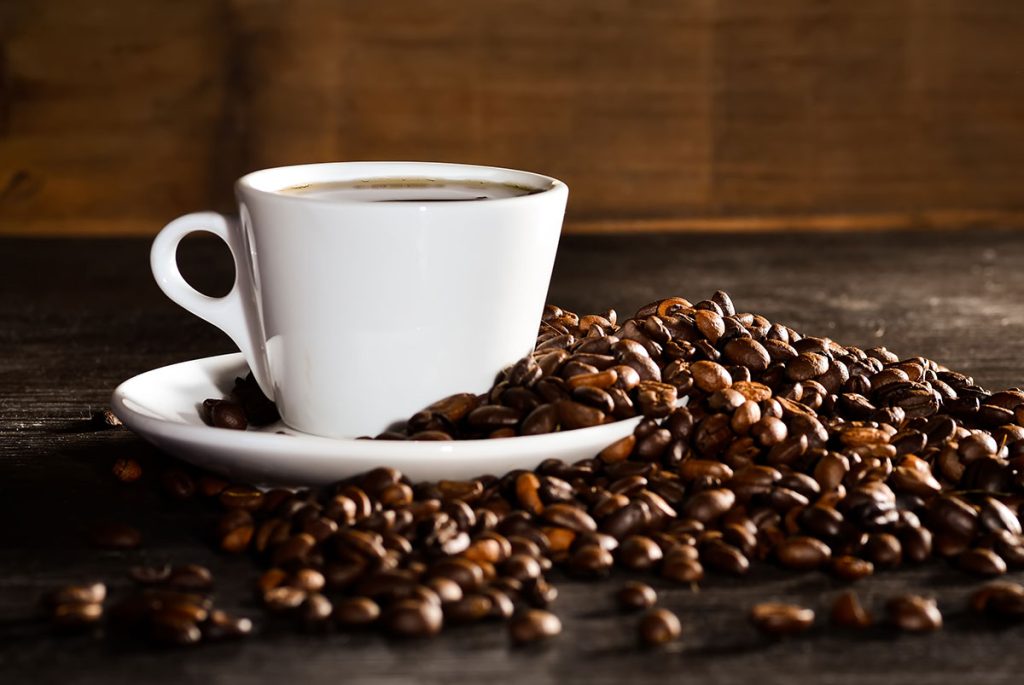
Yes, caffeine does have an impact on sleep quality and in this article, we’ll explore how.
Even though caffeine is a naturally occurring substance that’s found in many different drinks and foods, it can have a definite impact on the brain and behaviour. Commonly enjoyed tea, coffee, chocolate and colas contain caffeine as do some medications.
Caffeine promotes alertness by inhibiting sleep-promoting chemicals in the brain. Within 30 to 70 minutes, caffeine reaches its peak level in the bloodstream and then can last for 3 to 7 hours. It’s thought that it may even take up to 24 hours for caffeine to completely leave the body.
So, how does caffeine impact sleep?
There are a number of ways that caffeine can interfere with sleep:
1) Caffeine consumption can make it harder to go to sleep.
2) Your sleep may be lighter and you may wake up more often.
3) You may have to go to the toilet more during the night as caffeine can be a diuretic.
Medical professionals hold conflicting views on the consumption of caffeine at night and how it may impact your abilities to sleep well. According to some experts, caffeine should be avoided for 3 to 7 hours before going to bed. According to others, caffeine should not be consumed after lunchtime if you have sleeping problems. People often find that their sleep improves when they consume less caffeine or only consume caffeine earlier in the day.
Caffeine can cause sleep disruptions depending on an individual’s sensitivity level. It is possible that older people may be more sensitive to it, while genetic factors may also play a role.
The body metabolises caffeine more rapidly in people who use nicotine (e.g., smokers), but it can be slower in pregnant women or women taking oral contraceptives.
What is the typical caffeine content in some common foods and beverages?
Caffeine amounts in drinks and foods will vary depending on their strength. Below is a table showing the most common sources of caffeine. If sleeplessness is an issue it may be worthwhile tracking your caffeine intake for a few days and see if your sleep improves.
Substance | Caffeine Content (milligrams) |
Coffee (250ml or 1 small to average-sized cup Instant coffee Brewed coffee Iced Coffee Decaffeinated coffee | Depends on brand and strength 65-100 mg 80-350 mg Up to 150mg per carton 2-4mg |
Tea (250ml or 1 small to average-sized cup) Herbal tea Green tea Normal tea | 0-30 mg 30-60mg 50-70 mg |
Soft Drinks (375ml can or medium sized cup) Coca-Cola, Pepsi or similar Red Bull V Mother | 35-50 mg 80 mg 122 mg 126 mg |
Chocolate Most dairy milk chocolate (Dark chocolate has more caffeine) Cocoa and Hot Chocolate | 10 mg per 50g serve 7-70 mg per cup |
Caffeine Tablets NoDoze (Regular strength, per tablet) | 100mg |
What are some of the effects of caffeine?
Moderate doses of caffeine of up to 200mg, and a daily intake of less than 400mg don’t seem to cause any adverse health effects in healthy adults. Around five cups of regular strength black tea or two cups of brewed coffee (not too strong) per day is appropriate.
Caffeine benefits include alertness and mild euphoria (e.g., concentration, problem-solving) when consumed in low to moderate doses. At higher doses, though, caffeine may cause stomach upset, feelings of jitteriness and trembling, and sleep disruption.
Caffeine may become addictive if taken regularly. This means that if you suddenly stop taking it, you might experience headaches, tiredness, and anxiety and slowlyy reducing caffeine is better.
Caffeine to combat sleepiness
As caffeine increases alertness, it is commonly used to combat sleepiness during the day. Caffeine at frequent, low doses can help you stay alert if you are prone to sleepiness. 1-2 cups of tea, soft drinks or half a cup of instant coffee every two hours may suffice.
Although caffeine may help beat sleepiness temporarily, it does not replace the benefits of a good night’s sleep.
The relationship between caffeine and sleep disorders
Despite being a common sleep disorder, sleep apnea often goes undiagnosed and untreated. The main symptom of this sleep disorder is excessive daytime sleepiness [Obstructive Sleep Apnea (OSA)]. Due to caffeine’s ability to increase alertness, some people with sleep apnea may use caffeine to mask their sleepiness. This may result in a delay in diagnosing and treating them, which is not good for their health. Recent studies have shown a link between untreated sleep apnea and increased caffeine consumption, but more research is needed.
Restless Legs Syndrome [Restless Legs Syndrome] and insomnia [Insomnia] sufferers are often advised to reduce their caffeine intake.
Sleep Health Foundation researchers are now examining the possible link between caffeine use and sleep disorders. By understanding this link, we may be able to identify those at high risk of a sleep disorder.



